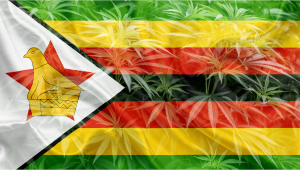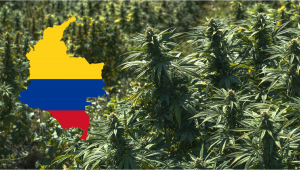Zimbabwe’s 57 Licensed Producers to Start Cannabis Exports Soon

The government of Zimbabwe has issued 57 licenses to companies that want to cultivate and process cannabis, according to the country’s Investment and Development Agency.
Most of these licensees are joint ventures with partners from Germany, Switzerland, and Canada, as well as a handful of local players. The agency said in a statement that cultivation is already underway at some of the farms and projects the sales to reach $1.25 billion this year.
Creating a New Industry from Scratch
Zimbabwe legalized the production and consumption of cannabis for medicinal purposes in 2018, but after 3 years, the industry is still nonexistent. In contrast to South Africa—where the use of dagga is widespread, as well as the knowledge of how to cultivate the plant—people in Zimbabwe are mostly unacquainted with cannabis.
The country has many tobacco farmers, but hardly any of them are ready to switch to another crop. Besides, the farmlands that have been mostly used to grow tobacco are ill-suited for medical marijuana because the soil is contaminated by fertilizers and other chemicals.
As for hemp, the license to cultivate this variety costs only $200, but it’s impractical to grow hemp for fiber on small tracts of land of about a few dozen acres. Besides, there’s still no infrastructure that would allow it to process the crop at a profit.
The critics of the government also point to the heavy regulation as, arguably, the greatest impediment to jumpstarting the brand-new sector. The need to construct a security fence, install surveillance equipment, and filter out cannabis odor (among other things) isn’t something that would attract small-scale farmers.
Export Projections, Perhaps Too Optimistic
Stakeholders in the cannabis industry raised brows when the Ministry of Finance forecasted the revenue from exports at $1.25 billion in their first year. It’s more than twice the amount generated by the long-established tobacco industry.
This overly optimistic figure probably just sums up the projections from business plans supplied by the companies when they were applying for their licenses. This year, there could hardly be anything but test runs and proof-of-principle grows.
However, with a climate almost perfectly suited for cannabis and hemp cultivation, no one doubts that Zimbabwe can play a major role in the global market. What’s needed is state regulation that creates opportunities rather than hurdles and a better investment climate.











Comments